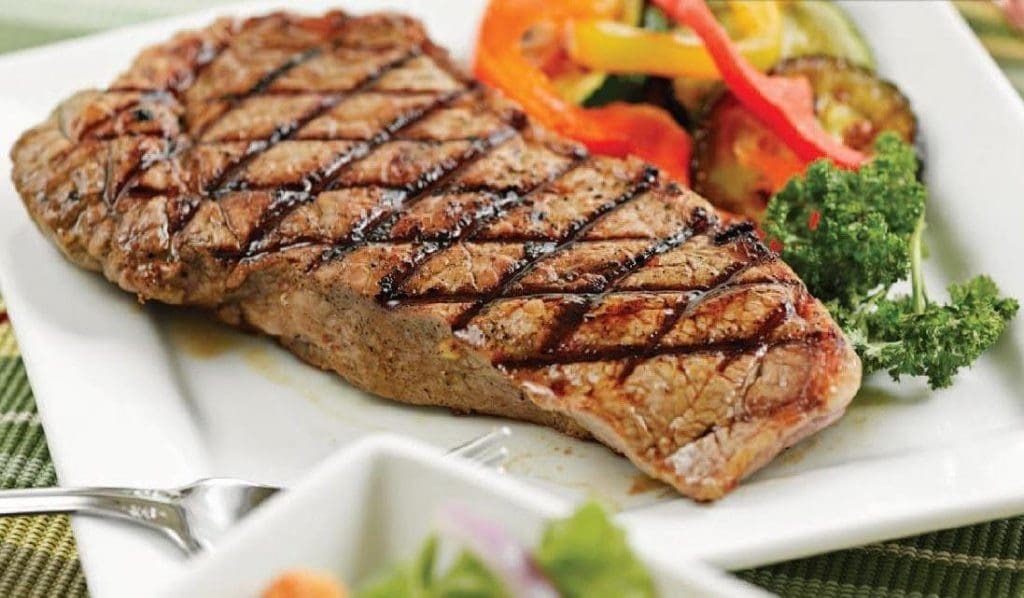
ASPARAGOPSIS-based feed additives designed to reduce enteric methane emissions from cattle have no significant impact on beef tenderness or flavour, a recent piece of Meat Standards Australia research work has shown.
The findings clear yet another hurdle for adoption of feed additives as the beef industry continues to reduce its carbon footprint. Solutions to decrease methane emissions of cattle are important to align with the Australian red meat industry’s target to be carbon neutral by 2030, as outlined in the Red Meat 2030 strategic plan.
The consumer sensory project compared beef from cattle fed an asparagopsis supplement with a control group of similar cattle that received no supplement. Results were based on MSA’s standard criteria of tenderness, juiciness, flavour and overall liking.
The research was related to asparagopisis based feed additives only, and did not cover alternative methane inhibitors like 3NOP or the synthetically-produced additives designed to duplicate the active ingredient in asparagopsis seaweed.
Previous experiments had evaluated the effect of supplementing cattle with freeze-dried asparagopsis on output of enteric methane emissions, but extensive eating quality research had not been conducted prior to this trial.
Bromoform, the active component in asparagopsis responsible for reducing methane output, has now been formulated into an oil suspension by a number of commercial companies to increase shelf life.
It is important that new products and additives planned to be used in livestock feeding are tested to ensure there is no effect on eating quality, Meat & Livestock Australia said in the 2023-24 MSA Annual Outcomes report released today.
Two studies
Two separate recently completed projects were undertaken to investigate the impact of asparagopsis oil on eating quality and flavour, both for longfed cattle (280 days on feed), and mid-fed cattle (150 days on feed).
The results of the research showed a minimal, ‘non-significant’ impact on eating quality, the MSA report said.
As a result, no changes to the MSA pathways model or standards have been made to accommodate cattle fed rations containing oil-based asparagopsis.
MSA program manager Dr David Packer said there was a very small numerical difference between the test group and the control, but it was not statistically significant.
The trial results were presented to the MSA pathways committee, which has agreed that no action is required to account for the use of asparagopsis feed additives in production systems under the MSA model.
“It’s a great outcome,” Dr Packer said.
He said a small-scale consumer sensory trial had also been conducted on another methane inhibiting feed additive – 3NOP (used in products like Bovaer) – by UNE’s Dr Pete McGilchrist, but the trial was only small in size, and was not conducted by MLA.
“When that information is ready, the MSA pathways committee will look at the results from that work and decide whether further, larger consumer taste test trials are required on 3NOP, or whether a decision can be made straight away,” Dr Packer said.
